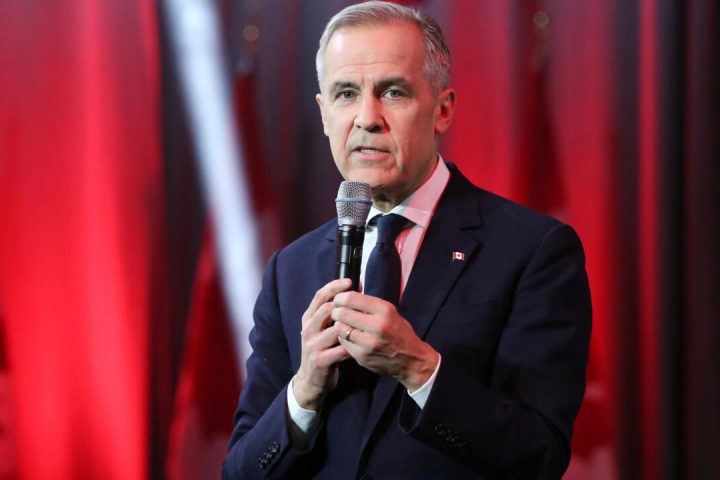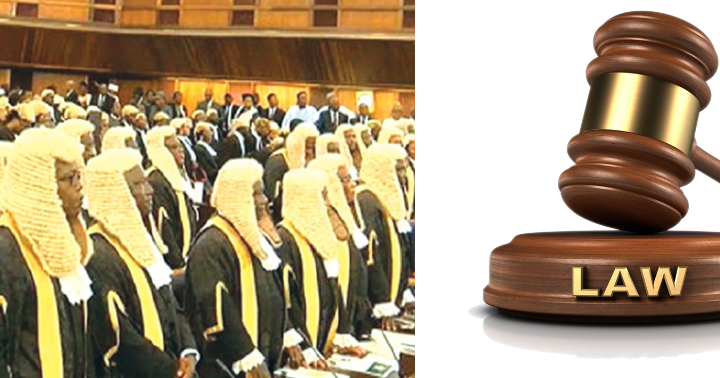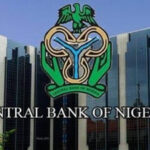By Arize Nwobu
The Central Bank of Nigeria (CBN) was established by the CBN Act of 1958 and commenced operation in 1959. The current legal framework within which the CBN operates is the CBN Act of 2007 which repealed the CBN Act of 1991 and all its amendments.
Join our WhatsApp ChannelThe Act provides, among other things, that the CBN should be a fully autonomous body in the discharge of its functions under the Act and the Bank and Other Financial Institutions Act, with the objective of promoting stability and continuity in economic management. It also widened the objectives of CBN to include rendering economic advice to the Federal Government.
The vision of CBN is: ‘’to be one of the most efficient and effective world’s central banks in promoting and sustaining economic development. And the mission is: ‘’to be proactive in providing a suitable framework for the economic development of Nigeria through the effective, efficient and transparent implementation of monetary and exchange rate policy and management of the financial markets.’’
READ ALSO: CBN Defends eNaira, Emphasizes Role In Financial Inclusion
It has been noted that a resilient financial system is one in which there are well-developed crisis management arrangements for handling distressed financial institutions in such a way that public confidence in the financial system would not be undermined.
CBN has had twelve successive Governors since its inception to date. They are, Roy Pentelow (1958-1963), Aliyu Mai Bornu (1963-1963), Clement Nyong Isong (1967-1975), Adamu Ciroma (1975-1977), Ola Vincent (1977-1982) and Abdulkadir Ahmed (1982-1993).
Others are, Paul Agbai Ogwuma (1993-1999), Oladele Sanusi (1999-2004), Professor Charles Chukwuma Soludo (2004-2009), Sanusi Lamido Aminu Sanusi (2009-2014), Godwin Emefiele (2014-2023) and Dr Yemi Cardoso (2023- going forward).
The eras of three respective CBN Governors, namely, Professor Charles Chukwuma Soludo, Sanusi Lamido Sanusi and Godwin Emefiele were particularly notable because of their radical policy priorities which aimed to enhance the banking system and productive capacity of the economy.
Professor Soludo faced the challenge of a weak banking system when banks were not lending; a situation which was detrimental to the economy. Banks serve as the most important financial intermediaries in developing economies, where they provide the largest share of financial services to lubricate the wheel of the economy through the efficient allocation of funds from savers to borrowers.
In addressing the challenge, Professor Soludo noted the fragility and lack of competitive edge of Nigerian banks. His vision was to have a banking system that would be part of the global change, and which was strong, competitive and reliable; and which depositors could trust and investors could rely upon.
He launched a 13-point agenda that aimed to restructure, refocus and strengthen the banking and financial system. His reforms encouraged Nigerian banks to go global and led to more than doubling of their branch network in West Africa., and the setting up of subsidiaries in London as well as successfully issuing Eurobonds and getting listed on the London Stock Exchange.
Professor Soludo also launched a new Microfinance policy and regulatory framework to ‘’serve the unserved 65 per cent of the bankable public’’, implemented the Basel 11 Principles and Risk-based supervision.
He also introduced reforms designed to stabilize the exchange rate, and adopted the Wholesale Dutch Auction System (WDAS), and increased the liberalization of the foreign exchange market. His reform agenda transformed the banking landscape, but the industry still needed further sanitization and stabilization in view of the circumstances of the time.
His successor, Sanusi Lamido Sanusi was appointed during the global financial crisis of 2009 which dealt a severe blow on the economy and banking system, and collapsed the capital market by about 70 per cent.
Sanusi’s policy priorities focused on further enhancing the quality of banks, establishing financial stability, enabling healthy financial sector evolution and ensuring the financial sector contributed to the real economy.
He sanitized the banking industry and enforced corporate governance principle, ensured risk-focused and rule-based regulatory framework, and rescued eight top-tier banks with over N600 Billion of public money. He also dismissed and imprisoned some bank chief executives who allegedly mismanaged customer deposits.
His successor, Godwin Emefiele, acknowledged his efforts and said: ‘’Let me sincerely acknowledge the excellent work that the Bank has done to achieve financial system stability, low inflation, exchange rate stability, an efficient payment system, and a consistent monetary policy in the last couple of years. Inflation is now at a six- year low, the exchange is largely stable and monetary policy has provided consistent guidance to the financial community, in particular, and the country in general.’’
Emefiele’s vision and policy thrust focused on creating a ‘’people-centred central bank.’’ He envisioned CBN to be the ‘’model central bank’’ that would deliver price stability and promote sustainable economic development. His vision was based on his understanding of the ‘’multiple mandate’’ of CBN to pursue both price stability as well as provide “complimentary developmental functions.’’
Emefiele believed in using direct methods of intervention, subsidized interest rates, legal restrictions, directed credit and moral suasion to promote particular markets and institutions.
He established various intervention funds including the Real Sector Support Facility (RSSF) and tried to maintain exchange rate stability by sustaining the managed float regime in the management of the exchange rate. His policy on agriculture helped to re-awaken public interest in the sector. Also, his strategic policies helped to shield the economy from the devastating effects of the Covid-19 pandemic.
The present CBN Governor, Dr Olayemi Cardoso is faced with the challenges of growing inflation, a volatile exchange rate, and a high interest rate among others. Going forward, economy watchers and analysts are optimistic that he and his team would be able to tackle the challenges and evolve policies that would create positive impacts on the economy.
Nwobu, a Chartered Stockbroker and Policy Analyst, wrote via arizenwobu@yahoo.com
Tel: 08033021230


















Follow Us